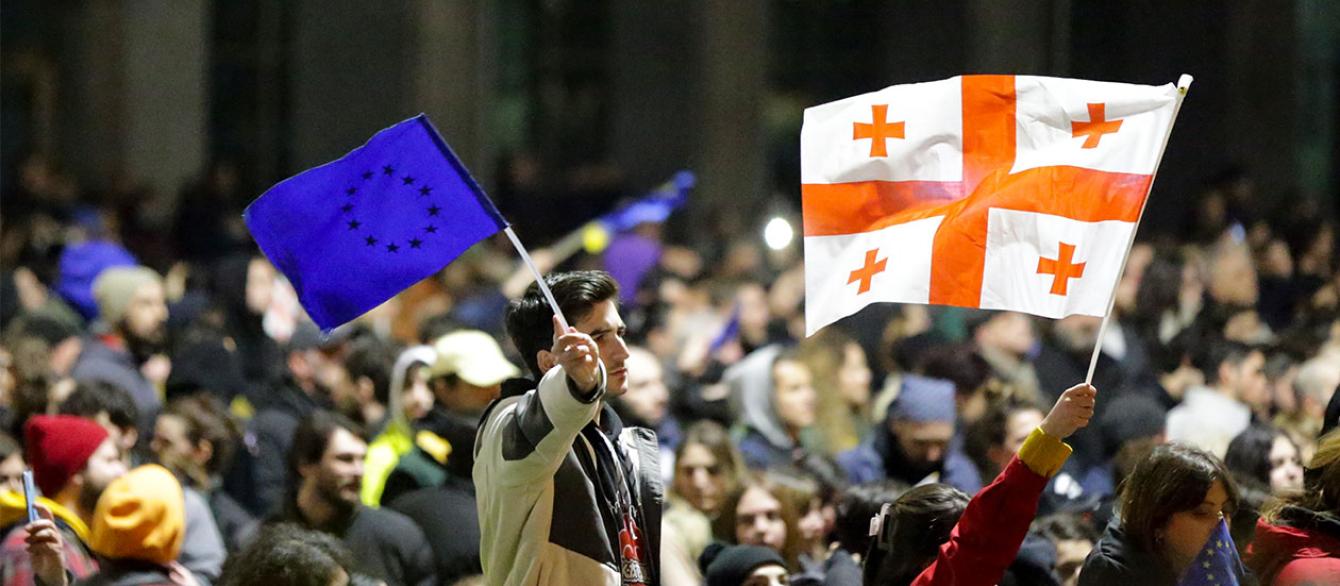On March 9th of this year, the Georgian parliament passed the controversial bill “On transparency of foreign influence.” Under the bill’s terms, Georgian NGOs and media outlets would have been designated “foreign agents” if more than 20% of their funding came from abroad. The law provoked massive demonstrations in Tbilisi, and scenes of riot police tear gassing protestors flooded social media around the world. After three days of protests and pressure from Georgia’s Western allies, the bill was withdrawn. The events underscored two things: a government willing to weaken Georgia’s democratic defenses, and a population willing to defend them. We have asked three Georgian academics - observers and participants in Georgia’s political life - to assess the situation. Where is Georgia going? Can its democracy survive? How is the country’s relationship with Europe evolving given the country’s application for full candidacy in the EU? What can be done?
Sponsorship
The Program on Georgian Studies is an activity of the Davis Center for Russian and Eurasian Studies at Harvard University and is made possible by a sponsored research award from the Ministry of Education and Science of Georgia.
Accessibility
The Davis Center for Russian and Eurasian Studies at Harvard University encourages persons with disabilities to participate in its programs and activities. If you anticipate needing any type of accommodation or have questions about the physical access provided, please contact us at 617-495-4037 or daviscenter@fas.harvard.edu in advance of your participation or visit. Requests for Sign Language interpreters and/or CART providers should be made at least two weeks in advance if possible. Please note that the Davis Center will make every effort to secure services but that services are subject to availability.




